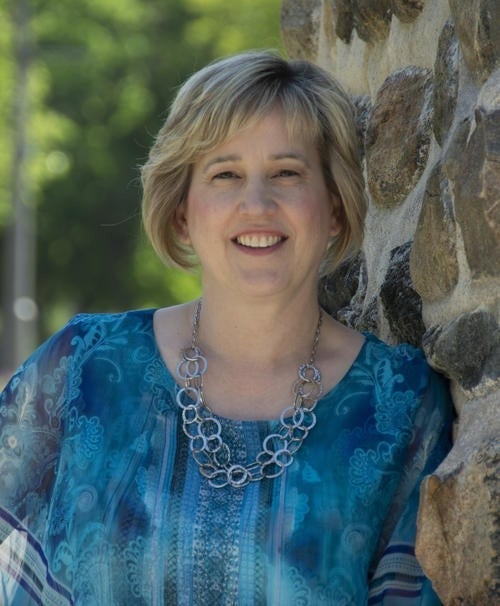Editor:
Brandon Sweet
University Communications
bulletin@uwaterloo.ca
When it comes to understanding gamers, the play's the thing

A team of multidisciplinary researchers at the University of Waterloo has identified three basic video game player traits that will help to make game design more personalized and more effectively motivate gamers in both entertainment and work applications.
Gustavo Fortes Tondello, a PhD candidate at Waterloo who co-authored the study with Lennart Nacke, an associate professor and director of the Human-Computer Interaction Games Group at Waterloo’s Games Institute, has been developing a more definitive player traits model that gives scores for different preferences. The model generates scores for three different traits, including the degree to which players prefer action elements, aesthetic aspects, or goal orientation in games. Identifying traits makes it possible to analyze player preferences for different groups of people, including different age ranges or genders.
“By better understanding what people like when playing games, we can determine how best to apply those elements to situations that are not games,” Tondello said. “We can create systems that are more pleasant to use and help people feel more engaged and motivated to achieve their goals.”
The research began by analyzing a dataset of over 50,000 respondents who had been surveyed for an earlier player satisfaction model called BrainHex, developed by Chris Bateman with Nacke and colleague Regan Mandryk.
With BrainHex, researchers identified player archetypes, including seeker, survivor, daredevil, mastermind, conqueror, socializer, and achiever. In contrast, this more recent model generates scores for three different “traits,” including the degree to which players prefer action elements, aesthetic aspects, or goal orientation in games. It’s possible to then analyze those player preferences for groups of people who are in different age categories, or different genders, for example.
Tondello and Nacke, have been exploring what motivates people and helps keep them playing certain games. Ultimately, they want to use the information to make game design more personalized and more effectively motivate gamers in both entertainment and work applications.
“Some people have been found to really enjoy daredevil, fast action elements of games, while others like the aesthetic elements, such as the art and graphic design,” said Nacke. “The story can also be necessary for drawing some people into a game.
“If we can build systems that can adapt to and accommodate individual differences, interactive systems become more exciting and motivating for every one of us."
The study, Towards a Trait Model of Video Game Preferences, co-authored by Tondello, Nacke, Deltcho Valtchanov, Adrian Reetz, Rina Wehbe and Rita Orji, all of the University of Waterloo Games Institute, was published recently in the International Journal of Human-Computer Interaction.
Schlegel Research Chair boosts dementia research capacity

While more and more older adults are living with dementia, many are living well, thanks in part to researchers like Carrie McAiney.
She works together with individuals with dementia, their families, and care partners to understand and address their future and current needs. Through collaboration, McAiney is redefining dementia care and support.
With nearly two decades of research experience, McAiney has been appointed the Schlegel Research Chair in Dementia. The position is shared with the Schlegel-UW Research Institute for Aging (RIA) and the University of Waterloo’s Faculty of Applied Health Sciences (AHS). It marks the 10th Schlegel Chair position supported by the Schlegel family to enhance care and quality of life for older adults, and the fifth Schlegel Research Chair at Waterloo.
McAiney joins the RIA and AHS from the Department of Psychiatry and Behavioural Neurosciences at McMaster University, where she was director of the Program for Interprofessional Practice, Education and Research. She obtained her PhD from UWaterloo in 1998.
“Dr. McAiney’s research is of crucial importance as we adjust to changing demographics,” says Josie d’Avernas, executive director at the RIA. “Her approach of putting individuals living with dementia and their families at the centre of her work makes her the perfect addition to our team of researchers.”
Paul Stolee, interim dean of AHS and himself an aging-focused researcher, said, “We are delighted to welcome Dr. McAiney back to the University and to the School of Public Health and Health Systems. Her research and scholarship will greatly contribute to our Faculty’s leadership role in improving the quality of life of older persons.”
McAiney hopes to change the way people view dementia and to challenge the stigma that surrounds the diagnosis.
“I hope that the research that I and the other Schlegel Research Chairs conduct will help to shift the often negative perceptions of people living with dementia and their abilities,” says McAiney. “We as a society need to gain understanding and a sincere appreciation for the important and outstanding contributions individuals living with dementia make in their communities.”
To help identify research priorities and advise her work, McAiney is establishing a Dementia Advisory Committee involving those living with dementia and family care partners. She also serves on a committee assessing evidence and best practices to inform the national dementia strategy.
To mark the beginning of this new role, McAiney delivered a public lecture to a sold-out audience at the RIA’s home base at the Centre of Excellence for Innovation in Aging in Waterloo.
Remembering Cathy May and other notes
Human Resources has reported that IST staff member Cathy May died on May 17. May joined the University in July 2009 and worked as Manager, Enterprise Systems. She is survived by her spouse Earl.
The bridge is out: Plant Operations is reporting that the stairwell in Carl Pollock Hall will be closed for asbestos removal and abatement as of Wednesday, July 11. This stairwell closure will affect the stairwell and the pedestrian overpass access on the south side of University Avenue as well, with both stairwells and bridge being out of commission until the end of August. Plant Operations will be using this opportunity to do some repairs on the University side of the bridge. Signage will be posted on the stairwell doors.
The pedestrian overpass that crosses University Avenue and connects to Carl Pollock Hall was built in 1971.

"Beerfest is back at the Bombshelter Pub, and you are invited!" says a note from the Federation of Students. "$10 gets you 14 samples of various beers to enjoy while listening to live music on the patio. Start your Friday off the right way, with your friends at The Bombshelter Pub!"
Upcoming office closures
The IST Service Desk in East Campus 2 and IST Media Resources in MC 1007 will be closing at 3:15 p.m. on Thursday, July 12 for a staff event.
Check the IST page for more details.
Link of the day
60 years ago: megatsunami in Lituya Bay
When and where
Celebrate Canada's Diversity at the University Club, Tuesday, July 3 to Friday, August 10, 11:30 a.m. to 2:00 p.m., University Club.
QPR Training, Tuesday, July 10, 1:30 p.m., Counselling Services, Needles Hall.
Master Your Job Search, Tuesday, July 10, 2:30 p.m., TC 1208.
CrySP Speaker Series on Privacy, “Where's Waldo?” — Privacy in the age of Internet-connected mobile technology, featuring Matthew Finkel, The Tor Project, Tuesday, July 10, 2:30 p.m., DC 1304.
New Faculty Nachos with the Faculty Association, Wednesday, July 10, 2:30 to 4:30 p.m., Grad House.
Coping Skills Seminar - Strengthening Motivation, Tuesday, July 10, 4:00 p.m., HS 2302.
Information Session for Graduating Students, Tuesday, July 10, 4:00 p.m., STC 0010.
Résumés, Careers and Personal Branding - Part 1, Tuesday, July 10, 4:30 p.m., TC 2218.
Science 101 Day, Wednesday, July 11.
Information Session for Graduating Students, Wednesday, July 11, 11:30 a.m., STC 0010.
Beyond Entrepreneurship panel discussion, Wednesday, July 11, 12:00 p.m., DC 1302.
Career Interest Assessment (Strong Interest Inventory), Wednesday, July 11, 1:30 p.m., TC 1112.
Childhood play spaces as What-If Worlds: The uncertainties of misogyny, racism, and classism, Wednesday, July 11, 2:30 p.m., QNC 1502.
NEW - Legal Cannabis Community Dialogues, Wednesday, July 11, 6:00 p.m., Stratford Campus.
Velocity Start: Setup Your Business Like A Boss, “A workshop that will address legal and accounting considerations that will affect your new business,” Wednesday, July 11, 7:30 p.m., Velocity Start, SCH 2nd Floor.
Exploring Your Personality Type (Myers-Briggs Type Indicator) - Part 1,Thursday,July 12, 12:30 p.m., TC 1112.
Getting published for grad students, Thursday, July 12, 1:00 p.m., South Campus Hall 228F.
Retirement celebration for Peggy Day, Thursday, July 12, 3:30 p.m. to 5:30 p.m., Federation Hall. RSVP to edoede@uwaterloo.ca.
Eco-Summit 2018: Building Commitment, featuring keynote speaker Tom Ewart, Senior Manager of Sustainability, The Co-operators, Thursday, July 12, 4:00 p.m. to 7:00 p.m., M3 1006 and foyer.
Résumés, Careers and Personal Branding - Part 2, Thursday, July 12, 4:30 p.m., TC 2218.
Open House - Harnessing Quantum Technologies, Friday, July 13, 9:30 a.m. to 3:15 p.m., Mike and Ophelia Lazaridis Quantum-Nano Centre.
WISE Lecture Series featuring Sankaran Ramalingam, WISE Senior Research Fellow, "Decoding the Energy Access Puzzle: An Overview of an Experiment at the Grassroots Level," Friday, July 13, 2:00 p.m. to 3:00 p.m., DC 1302.
CS seminar: The prehistory and history of RE (+SE) as seen by me, featuring Dan Berry, David R. Cheriton School of Computer Science, Friday, July 13, 3:00 p.m., DC 2585.
The Promise of Living: University Choir, Saturday, July 14, 7:30 p.m., Cedars Worship Centre, Waterloo.
Book Store Summer Reading Sale, Monday, July 16 and Tuesday, July 17, 9:30 a.m. to 4:30 p.m., SCH concourse.
Arts 101 Day, Monday, July 16.
Coping Skills Seminar - Cultivating Resiliency, Monday, July 16, 4:00 p.m., HS 2302.
Say it in your own words: Paraphrase & summary, Tuesday, July 17, 1:00 p.m., SCH 228F.
Coping Skills Seminar - Strengthening Motivation, Tuesday, July 17, 4:00 p.m., HS 2302.
Getting it done: Productive writing strategies for big projects, Wednesday, July 18, 10:00 a.m., SCH 228F.
Math 101 Day, Thursday, July 19.
5th Annual UWSA Golf Social Tournament, Thursday, July 19, 3:30 p.m., Foxwood Country Club. Deadline to register is Friday, July 6.
Velocity Billion Dollar Briefing, “Get introduced to five different billion-dollar problems,” Thursday, July 19, 7:30 p.m., Velocity Start, SCH 2nd Floor.
Beautiful Wanderings: orchestra@uwaterloo, Thursday, July 19, 7:30 p.m., First United Church, Waterloo.
Instrumental Chamber Ensemble Concert, Sunday, July 22, 7:30 p.m., Conrad Grebel Chapel.
WISE Public Lecture: Biogas - Resource Recovery & Clean Tech, Tuesday, July 24, 10:30 a.m. to 11:30 a.m., DC 1304.
Waterloo FileMaker Database Workshop presented by CoreSolutions, Tuesday, July 24, 1:00 p.m., DC1304.
Hallman Lecture: Whiteness, Women and Sex Tourism, Tuesday, July 24, 3:30 p.m., AHS 1686.
Lectures and classes end, Wednesday, July 25.
More Feet on the Ground - Mental Health Training, Wednesday, July 25, 9:00 a.m., NH 2447.
Velocity Fund Finals, “20 startups compete for $130,000,” Wednesday, July 25, 11:00 a.m., SLC Great Hall.
Waterloo Women's Wednesdays: Lunchtime Yoga, Wednesday, July 25, 12:00– p.m. to 1:00 pm., NH 3407.
Pre-examination study days, Thursday, July 26 and Friday, July 27.
Environment 101 Day, Thursday, July 26.
Examinations begin, Saturday, July 28.
Online examination days, Saturday, July 28 and Friday, August 3.
CrySP Speaker Series on Privacy featuring Vern Paxson, University of California, Berkeley, Tuesday, July 31, 11:00 a.m., DC 1304.